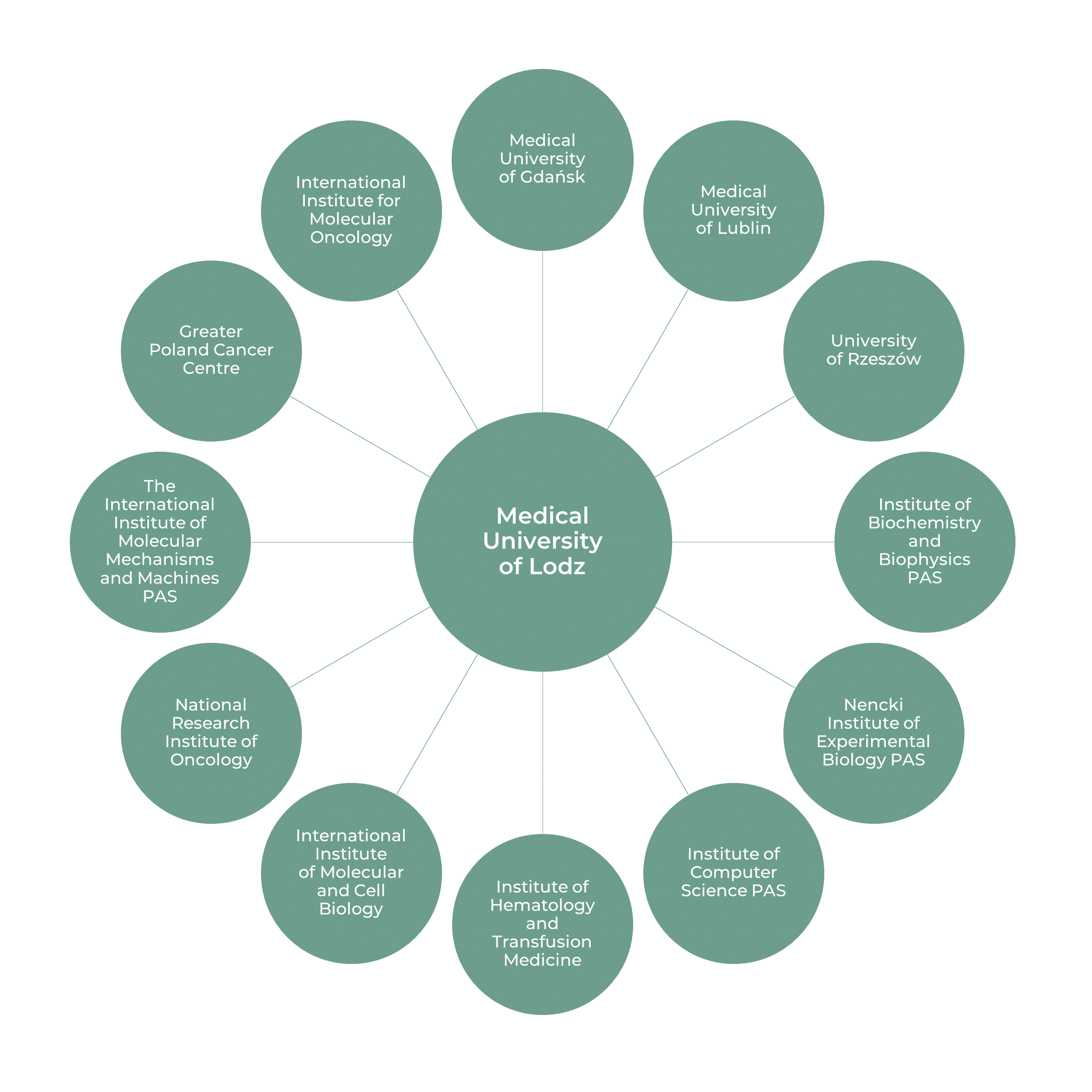The Doctoral School of Molecular Medicine is an organized form of doctoral education conducted by the Medical University of Lodz in the disciplines of pharmaceutical sciences and medical sciences.
Education in the Doctoral School of Molecular Medicine:
- lasts for 8 semesters and culminates in the submission of a doctoral dissertation
- prepares for obtaining a doctoral degree
is conducted based on the training program and individual research plan - is carried out in collaboration with other universities and scientific institutions (partners) based on agreements concluded with them by the University
- the primary language of instruction in the Doctoral School of Molecular Medicine is English

SMM curriculum Partners

Main objectives
The primary goal of education in the Doctoral School of Molecular Medicine is for the doctoral candidate to submit a doctoral dissertation and to prepare the candidate to obtain a doctoral degree.
The main training objectives in the Doctoral School of Molecular Medicine also include:
-
Preparing doctoral candidates for research, research and development, and teaching work, including in an international environment.
-
Equipping doctoral candidates with the skills to utilize the global scientific knowledge base, identify and solve research problems, plan and conduct scientific research, develop results in the form of patents, publications, or presentations at scientific conferences.
-
Achieving high research competencies and scientific independence by doctoral candidates.
-
Preparing doctoral candidates to independently plan their own scientific development and take on challenges in their professional and public spheres, considering their ethical dimension and responsibility, following the European Charter for Researchers.
-
Preparing doctoral candidates to participate in the exchange of scientific experiences and ideas in an international environment.
-
The Doctoral School of Molecular Medicine supports the mobility of doctoral candidates and the establishment of international contacts by enabling them to participate in international exchange programs and scientific conferences.
Curriculum Modules

MODULE I
mandatory classes
.

MODULE II
techniques in molecular medicine “thematic schools"

MODULE III
elective courses
.
MODULE I • mandatory classes
These classes are conducted in the first year of education and cover subjects such as: Basics of Teaching, Legal Protection of Intellectual Property and Commercialization of Scientific Research, Legal and Ethical Conditions for Conducting Medical Experiments, and Preparation for Submitting an Application to the Bioethical Committee, Acquiring Sources of Funding for Scientific Research.
MODULE II • techniques in molecular medicine
Techniques in molecular medicine – obligatory course, covering the issues of laboratory methodology, analytical methods, bioinformatics and visualization. The issues will be discussed by experts in the respective fields, selected from among representatives of the University and partner organizational units.
Courses are grouped into the so-called “thematic schools", conducted in the winter and summer semesters at the University and partner organizational units (full-time classes, two thematic schools per year, each school with a minimum of 30 hours).
MODULE III • elective courses
Elective courses are chosen by doctoral students from among courses offered by the University research and teaching units or partner organizational units in each academic year. The total number of hours of elective courses during the period of studies may not be lower than 30 hours. In order to complete an elective course, a doctoral student has to obtain a credit.